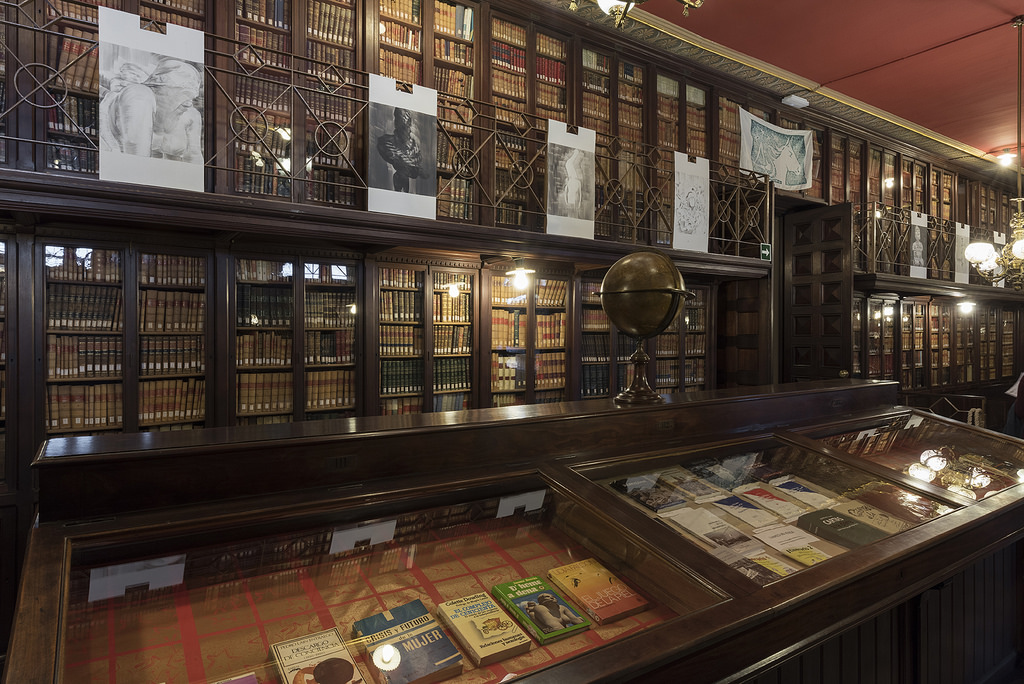

Main photo by latitudes-flickr via VisualHunt
Barcelona has a great network of public libraries that offer excellent services to the public, in addition to giving you the opportunity to find the perfect book and having tons of information at your fingertips. Many of Barcelona’s public libraries offer workshops, events, and a great place to relax and dive into a great story. Most neighborhoods have a local library, but there are some historical libraries in Barcelona that are worth seeing just for their amazing architecture and to see how they have played an important role in Barcelona’s history. One such library is The Arús Public Library, which has been fascinating visitors for years, not only for its architectural wonder but also for its historical connection to the Freemasons.
Table of Contents


Photo by yosoynuts via Visual Hunt
You have probably heard of the Freemasons, a secret society that is the subject of countless books, movies, and conspiracy theories. Like many European capital cities, Barcelona has a history of Freemasonry as well as symbols hidden all over the city. Ildefons Cerdà was a city planner in the 1800s who helped design the layout of the modern city of Barcelona, and planned the city with Masonic principles in mind. During this time there were more than 170 Masonic lodges in Spain, including one such lodge located in the library. The Arús Public Library is located on Passeig Sant Joan, a street named after Saint John, the patron saint of the Freemasons.
Address: Passeig de Sant Joan, 26
Related article: CCCB’s cool secret library
The Arús Public Library hasn’t always been a library, it once was the home of its namesake, Rossend Arús who was an influential playwright and journalist at that time. He conducted Masonic meetings in his home starting from 1888, and had great power and influence in Barcelona from behind the scenes. He and fellow members of the Masons had strong political ties and used this in their favor. Soon, Arús‘ home became an official Masonic Temple and upon his death in 1891 it became a Freemason library.
During Franco’s dictatorship, he ordered that all Masonic buildings be torn down, and most were. However, the Arús Public Library was protected and kept a low profile, which helped it escape destruction. After the dictatorship ended, the Freemasons of Barcelona unveiled the library and opened it up to the public.
Related article: Historic libraries in Barcelona
Photo by latitudes-flickr via Visualhunt
Today, you can visit the library and experience its history firsthand. Since it is a public library, you can enter certain parts of the library free of charge and take a peek around. A great option is to purchase a ticket for a guided visit which will give you access to all parts of the library, and you can learn detailed information about its past. A guided tour costs €9 and is available in English or Catalan. Discover this hidden gem in Barcelona’s center and explore the magic and mysticism behind its history.
Looking for an apartment in the city? Let ShBarcelona help you in your search.
Barcelona’s Mediterranean climate, with increasingly warmer and longer summers, makes air conditioning an essential feature…
Maybe you're thinking about selling a property or you've just inherited one or more real…
Do you enjoy strolling among trees and plants, away from the hustle and bustle of…
If you are planning to move to Barcelona for a few months or permanently, one…
ShBarcelona establishes itself as the leading agency within the Apialia Eixample Group, reaffirming its position…
Are you going to visit Barcelona this 2025? The vibrant Catalan capital once again becomes…